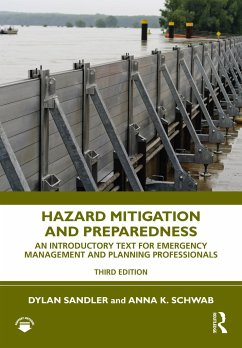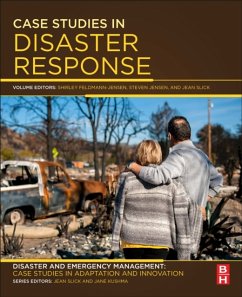Nicht lieferbar

Disaster Health Management
A Primer for Students and Practitioners
Herausgeber: Fitzgerald, Gerry; Aitken, Peter; Tarrant, Mike; Fredriksen, Marie
Versandkostenfrei!
Nicht lieferbar
Disaster Health Management is the first comprehensive textbook to provide a standard guide to terminology and management systems across the entire spectrum of disaster health. The textbook provides an authoritative overview of: the conceptual basis for disaster management; systems and structures for disaster management; getting ready for disasters; incident management; recovery; natural disasters; man-made disasters; and strategic considerations. Using examples of broad principles with global application this is an essential text for both undergraduate and postgraduate students, as well as for...
Disaster Health Management is the first comprehensive textbook to provide a standard guide to terminology and management systems across the entire spectrum of disaster health. The textbook provides an authoritative overview of: the conceptual basis for disaster management; systems and structures for disaster management; getting ready for disasters; incident management; recovery; natural disasters; man-made disasters; and strategic considerations. Using examples of broad principles with global application this is an essential text for both undergraduate and postgraduate students, as well as for professionals involved in all health aspects of disaster management.













